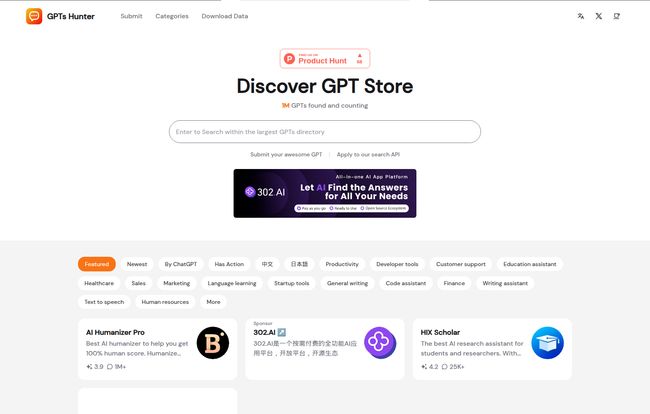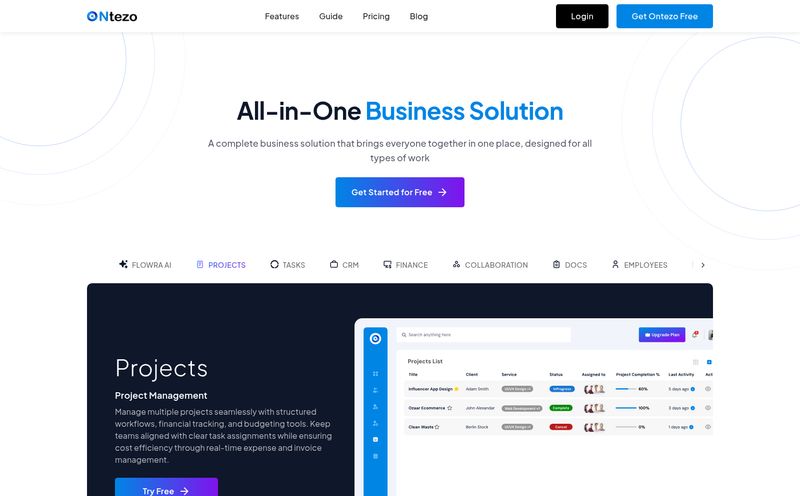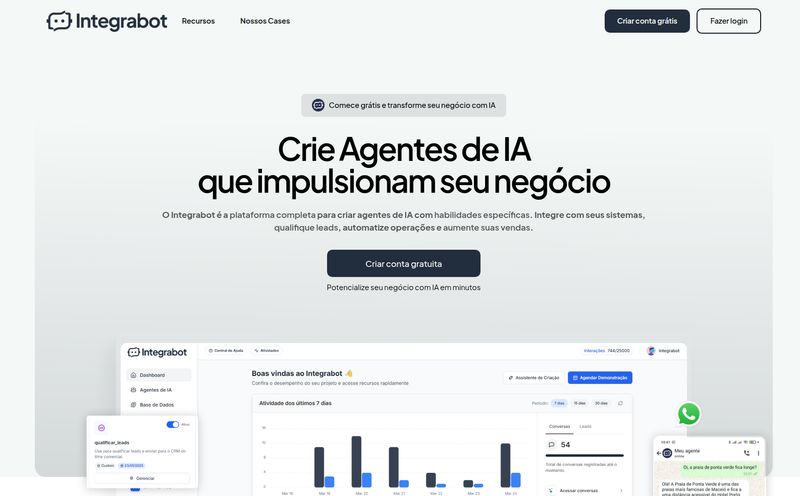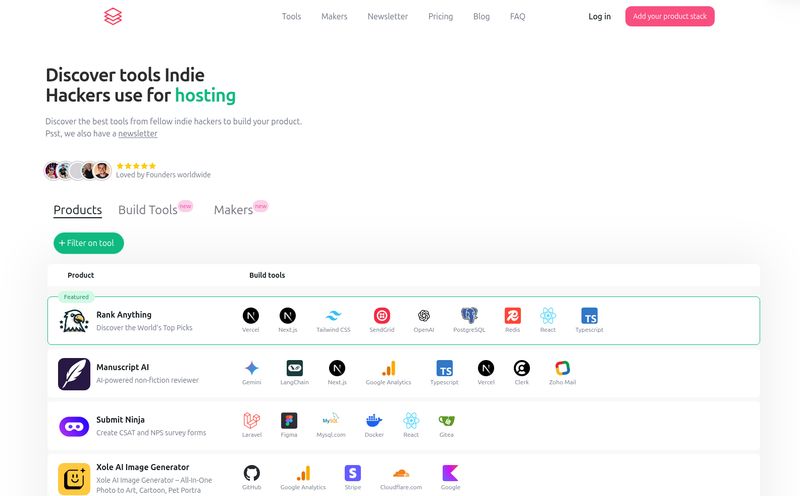The OpenAI GPT Store is… a lot. It’s like a digital gold rush. Everyone's staking a claim, building their own little AI helper, and tossing it onto the pile. And while there’s some serious gold in them thar hills, there’s also a whole lot of mud. Finding a genuinely useful, well-built custom GPT can feel like trying to find a specific needle in a continent-sized haystack of needles.
I’ve wasted more hours than I care to admit clicking on promising-looking GPTs, only to find they're glorified one-trick ponies or just plain broken. It’s frustrating. As someone who lives and breathes SEO and digital marketing, my time is my most valuable asset. So when I heard about a platform called GPTsHunter, claiming to be a curated directory for the store, my first thought was, “Oh, great. Another list.”
But I gave it a shot. And I’m glad I did. It’s not just another list; it’s more like a community-run guide for navigating the chaos.
What is GPTsHunter Anyway?
Think of it like this: If the GPT Store is a massive, sprawling library with no librarian and books just thrown on shelves randomly, then GPTsHunter is the friendly, super-organized librarian who greets you at the door. It doesn’t create the GPTs itself. Instead, it’s a discovery platform where the community—actual users like you and me—can submit, share, rate, and discuss the custom GPTs they find.
It’s a simple but powerful idea. It adds a much-needed layer of social proof on top of OpenAI’s often-mysterious algorithm. You can see what’s trending, what’s highly rated in specific categories, and read what people are actually saying about a tool before you invest your time in it.
Navigating the Digital Shelves
My first impression of the site was, frankly, relief. It’s clean. It’s organized. You land on the homepage and immediately see sections that just make sense:
- Today's Trending GPTs on GPT Store
- Best Art & DALL-E GPTs
- Best Writing GPTs
- Best Productivity GPTs
- ...and so on.
This categorical approach is a godsend. The other day, I was specifically looking for a GPT to help me brainstorm some content clusters around a new keyword set. Instead of wading through the official store’s generic suggestions, I hopped over to the “Best SEO GPTs” section on GPTsHunter. Found a couple of interesting options in minutes, one of which has already become a staple in my workflow. That’s the magic right there.

Visit GPTsHunter
The Good, The Bad, and The AI-Generated
No tool is perfect, of course. GPTsHunter has its strengths and a few things that made me pause.
The Good Stuff
The biggest win here is the community-driven rating system. Seeing upvotes and star ratings from real people is infinitely more useful than just a name and a description. It filters out so much of the noise. It also provides a space for discussion, which can be invaluable for getting tips on how to use a specific GPT effectively.
For the more technically inclined among us, they also provide helpful resources like API documentation. It’s a small touch, but it shows they understand their audience includes developers and tinkerers, not just casual users. For me, that builds a lot of trust.
The Not-So-Good
Now for a reality check. GPTsHunter is a window into the GPT Store; it's not a magic wand that fixes the store's inherent problems. The platform’s usefulness is directly tied to the quality of the GPTs available. If the store is flooded with low-quality submissions, GPTsHunter will be too. It’s a filter, not a creator.
There's also the question of bias. Could developers be gaming the system, getting friends to upvote their own creations? It’s possible. It’s a risk with any community-rated platform, from Amazon to Yelp. You still need to use your own judgment. I've always felt that a healthy dose of skepticism is a good thing in the tech world. Don't just trust the top-rated one blindly, read a few comments if they're there.
Who Is This Really For?
So, who should bookmark GPTsHunter? If you're a casual ChatGPT user who's perfectly happy with the standard interface, you might not need it. But if you’re a ChatGPT Plus subscriber trying to boost your productivity, this platform is for you.
I'd say it's practically built for:
- Marketers and SEOs looking for specialized tools for analysis, content creation, and strategy.
- Writers and Creatives who want to find GPTs for brainstorming, editing, or generating specific artistic styles.
- Developers and Programmers searching for coding assistants or documentation helpers.
- Students and Researchers needing help with summarization, data analysis, or learning new topics.
Basically, if you see the potential of custom GPTs but are tired of the treasure hunt, this is your map.
Let's Talk Money: The Price Tag
This is often the sticking point, isn't it? Well, here’s the best part. From all my digging, GPTsHunter appears to be completely free to use. I even looked for a pricing page, and it seems to be non-existent or broken (which usually means there isn't one yet). This makes it a complete no-brainer. There’s no subscription, no credit card required, no barrier to entry. You just go to the site and start exploring. Of course, you'll still need that ChatGPT Plus subscription to actually use the GPTs you discover, but the discovery service itself costs nothing.
Is It Just Another Directory?
Yes and no. At its core, it is a directory. But I feel it's more than that. The interface is slick, the focus on community interaction feels genuine, and they seem to be paying attention to the conversation. For instance, in their on-site FAQ, they actually address a controversy about the names of some GPTs, explaining their stance on curation and content. That level of transparency is rare and I respect it.
It has the vibe of a passion project built by people who were genuinely frustrated with the official store—and in my experience, those are often the most useful tools.
My Final Verdict
So, is GPTsHunter a game-changer? Maybe not in a world-altering sense, but it’s a massive quality-of-life improvement. It solves a real, tangible problem for anyone who regularly uses custom GPTs. It saves me time, reduces frustration, and has genuinely helped me discover AI tools that make my work easier and better.
It’s not perfect, and you still need to bring your own critical thinking to the table. But as a free tool for navigating the wild, wonderful, and often weird world of the GPT Store? It’s earned a permanent spot in my browser's bookmarks. Give it a look. You might just find your new favorite AI assistant.
Frequently Asked Questions about GPTsHunter
- Is GPTsHunter free to use?
- Yes, as of now, the platform is completely free to browse and use for discovering GPTs.
- Do I need a ChatGPT Plus subscription to use the GPTs I find?
- Yes. GPTsHunter is a directory to help you find custom GPTs. To actually use them, you need an active ChatGPT Plus subscription from OpenAI.
- Can I submit my own GPT to GPTsHunter?
- Absolutely. The platform is built on community sharing, so you are encouraged to submit the useful GPTs you've created or found.
- Is GPTsHunter an official part of OpenAI?
- No, it is an independent, third-party platform created to help users navigate the official OpenAI GPT Store. It is not affiliated with OpenAI.
- How are GPTs rated on the platform?
- Ratings are driven by the community through a system of upvotes and user reviews, similar to platforms like Reddit or Product Hunt.
- What if I can't find a GPT for my specific need?
- The GPT Store is constantly growing, so new tools are added daily. Keep checking back! Or, if you're feeling adventurous, it might be a great opportunity to try building your own custom GPT to fill that gap.



